





























Sugar Raymond Charles "Ray" Leonard (born May
17, 1956) is an American former professional boxer, motivational speaker,
and occasional actor. Often regarded as one of the greatest boxers
of all time, Leonard was part of "The Fabulous Four" a group of boxers
who all fought each other throughout the 1980s, consisting of himself,
Roberto Duran, Thomas Hearns and Marvin Hagler. "The Fabulous Four"
created a wave of popularity in the lower weight classes that kept
boxing relevant in the post-Muhammad Ali era. Leonard was also the
first boxer to earn more than $100 million in purses, won world titles
in five weight divisions, including a run as the undisputed welterwight
champion, and defeated future fellow international Boxing Hall of
Fame inductees Hearns, Duran, Hagler, and Wilfred Benitez. Leonard
was named "Boxer of the Decade" in the 1980s.
Early Life
Leonard,
the fifth of seven children of Cicero and Getha Leonard, was born
in Rocky Mount, North Carolina. He was named after Ray Charles, his
mother's favorite singer. The family moved to Washington, D.C., when
he was three, and they settled permanently in Palmer Park, Maryland
when he was ten. His father worked as a supermarket night manager
and his mother was a nurse. He attended Parkdale High School. Leonard
was a shy child, and aside from the time he nearly drowned in a creek
during a flood in Seat Pleasant, Maryland, his childhood was uneventful.
He stayed home a lot, reading comic books and playing with his dog.
His mother said: "He never did talk too much. We never could tell
what he was thinking. But I never had any problems with him. I never
had to go to school once because of him.
Amateur career
Leonard
Started boxing at the Palmer Park Recreation Center in 1969. His older
brother, Roger, started boxing first. Roger helped start the boxing
program, urging the center's director, Ollie Dunlap, to form a team.
Dave Jacobs, a former boxer, and Janks Morton volunteered as boxing
coaches. Roger won some trophies and showed them off in front of Ray,
goading him to start boxing.
In 1972, Leonard boxed in the featherweight
quarterfinals of the National AAU Tournament, losing by decision to
Jerome Artis. It was his first defeat. Later that year, he boxed in
the Eastern Olympic Trials. The rules stated that a boxer had to be
seventeen to box in international competition, so Leonard, only sixteen,
lied about his age. He made it to the lightweight semifinals, losing
a disputed decision to Greg Whaley, who took such a beating that he
wasn't allowed to continue in the trials and never boxed again.
Sarge
Johnson, assistant coach of the U.S. Olympic Boxing Team, said to
Dave Jacobs, "That kid you got is sweet as sugar". The nickname stuck.
However, given his style and first name, it was probably only a matter
of time before people started calling him Sugar Ray, after the man
many consider to be the best boxer of all time, Sugar Ray Robinson.
In 1973, Leonard won the National Golden Gloves Lightweight Championship,
but lost to Randy Shields in the lightweight final of the National
AAU Tournament. The following year, Leonard won the National Golden
Gloves and National AAU Lightweight Championships. Leonard suffered
his last two losses as an amateur in 1974. He lost a disputed decision
to Anatoli Kamnev in Moscow, after which, Kamnev gave the winner's
trophy to Leonard. In Poland, Kazimierz Szczerba was given a decision
victory over Leonard, even though he was dominated in the first two
rounds and dropped three times in the third. Leonard won the National
Golden Gloves and National AAU Light Welterweight Championships in
1974. The following year, he again won the National AAU Light Welterweight
Championship, as well as the Light Welterweight Championship at the
Pan American Games.
In 1976, Leonard made the U.S. Olympic Team
as the light welterweight representative. The team also included Leon
and Michael Spinks, Howard Davis Jr., Leo Randolph, Charles Mooney,
and John Tate. Many consider the 1976 U.S. team to be the greatest
boxing team in the history of the Olympics. Leonard won his first
four Olympic bouts by 5-0 decisions. He faced Kazimierz Szczerba in
the semifinals and won by a 5-0 decision, avenging his last amateur
loss. In the final, he boxed the great Cuban knockout artist Andres
Aldama, who scored five straight knockouts to reach the final.

